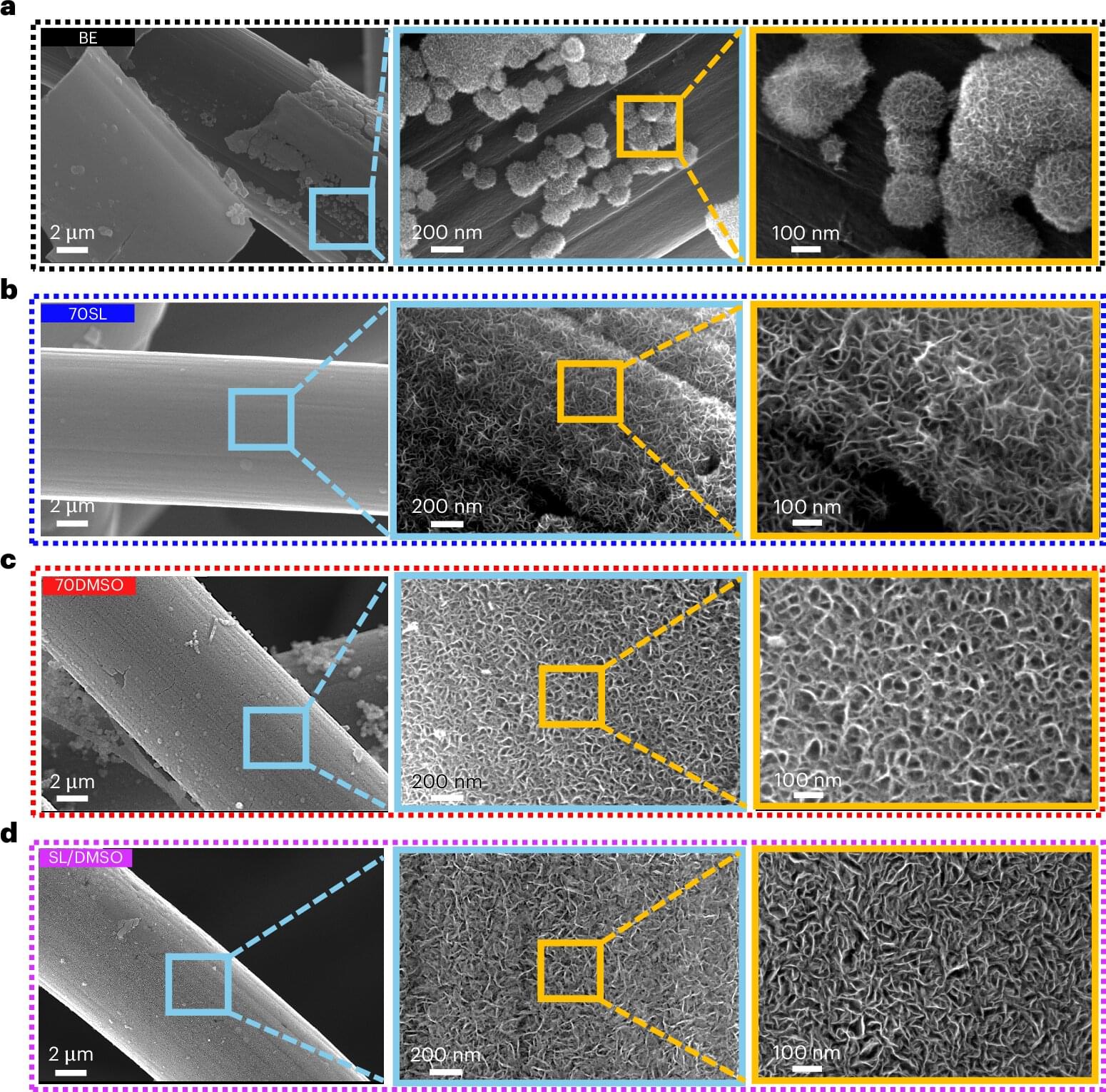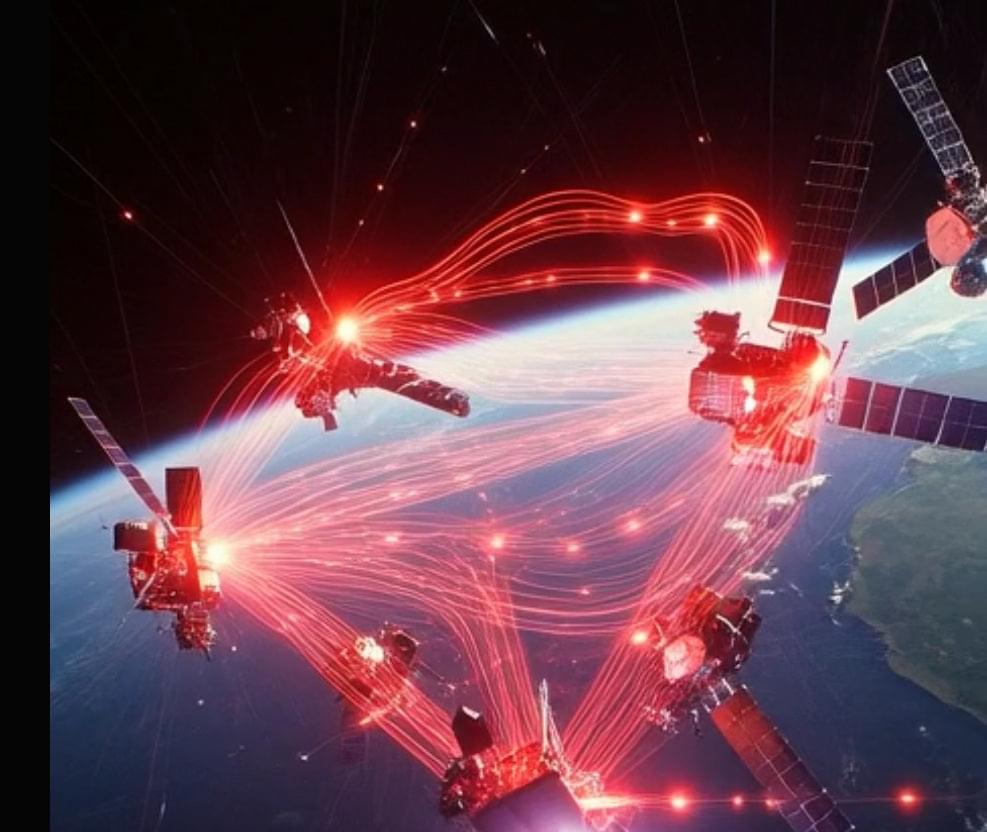3D-printed designs and 3D-woven clothing by tech startup Unspun hints at what the fashion industry’s sustainable, zero-waste future could look like.


At the entrance to Starbase in south Texas, a glowing sign now welcomes visitors with the words “Gateway to Mars.” The display sits in front of SpaceX facilities where giant Starship rockets are being assembled with one bold purpose in mind: Elon Musk wants to build a self-sustaining city on Mars.
In recent years he has begun to put numbers on that dream. Musk has repeatedly said that building the first sustainable city on Mars would require around 1,000 Starship rockets and roughly 20 years of launch campaigns, moving up to 100,000 people per favorable Earth-Mars alignment and eventually reaching about one million settlers plus millions of tons of cargo.
It sounds like science fiction with a project plan. Yet the language he uses, “sustainable city,” is very familiar to climate and energy experts here on Earth. So what does sustainability really mean on a frozen, air-thin world and how does that huge effort interact with the environmental crisis on our own planet?

Extremely cool paper describing optically programmable ~0.3 mm robots with onboard computation and autonomous locomotion! These tiny rectangular machines carry solar cells, optical receivers, electrokinetic actuators, and more. As demonstrations, the authors programmed them (i) to report local temperature by doing a coded dance and (ii) swim towards warmth before stopping and rotating upon reaching a location with a certain level of heat. This is amazing and I hope such devices are further improved so they can be used in biological applications! Love it!
(https://www.science.org/doi/10.1126/scirobotics.adu8009)
Autonomous submillimeter robots are built with onboard sensing, computation, memory, communication, and locomotion.

Researchers at The Hong Kong University of Science and Technology (HKUST) have achieved a breakthrough in calcium-ion battery (CIB) technology, which could transform energy storage solutions in everyday life. Utilizing quasi-solid-state electrolytes (QSSEs), these innovative CIBs promise to enhance the efficiency and sustainability of energy storage, impacting a wide range of applications from renewable energy systems to electric vehicles.
The findings, titled “High-Performance Quasi-Solid-State Calcium-Ion Batteries from Redox-Active Covalent Organic Framework Electrolytes,” are published in the journal Advanced Science.
The urgency for sustainable energy storage solutions is growing critical worldwide. As the world accelerates its shift to green energy, the demand for efficient and stable battery systems has never been more pressing. Today’s mainstream lithium-ion batteries (LIBs) face challenges due to resource scarcity and near-limited energy density, making the exploration of alternatives like CIBs essential for a sustainable future.
SpaceX, in collaboration with xAI, plans to build a lunar base called Moonbase Alpha using advanced technologies such as mass drivers, solar power, and Starship, aiming to make human activity on the moon visible, affordable, and sustainable ##
## Questions to inspire discussion.
Launch Infrastructure Economics.
🚀 Q: What launch costs could SpaceX’s moon infrastructure achieve? A: Mature SpaceX moon operations could reduce costs to $10/kg to orbit and $50/kg to moon surface, enabling $5,000 moon trips for people under 100kg (comparable to expensive cruise pricing), as mentioned by Elon Musk.
⚡ Q: How could lunar mass drivers scale satellite deployment? A: Lunar mass drivers using magnetic rails at 5,600 mph could launch 10 billion tons of satellites annually with 2 terawatts of power, based on 2023 San Jose State study updating 1960s-70s mass driver literature.
Starship Capabilities.

When the sun goes down, solar panels stop working. This is the fundamental hurdle of renewable energy: how to save the sun’s power for a rainy day—or a cold night. Chemists at UC Santa Barbara have developed a solution that doesn’t require bulky batteries or electrical grids. In a paper published in the journal Science, Associate Professor Grace Han and her team detail a new material that captures sunlight, stores it within chemical bonds and releases it as heat on demand.
The material, a modified organic molecule called pyrimidone, is the latest advancement in molecular solar thermal (MOST) energy storage.
“The concept is reusable and recyclable,” said Han Nguyen, a doctoral student in the Han Group and the paper’s lead author.

Many countries worldwide are increasingly investing in new infrastructure that enables the production of electricity from renewable energy sources, particularly wind and sunlight. To make the best of these energy solutions, one should also be able to reliably store the excess energy created during periods of intense sunlight or wind, so that it can be used later in times of need.
One promising type of battery for this purpose is based on zinc-manganese (Zn-Mn) and utilizes aqueous (i.e., water-based) electrodes instead of flammable organic electrolytes. These batteries rely on processes known as electrodeposition and dissolution, via which solid materials form and dissolve on electrodes as the battery is charging and discharging.
In Zn-Mn batteries, Zn serves as the anode (i.e., the electrode that releases electrons) and manganese dioxide (MnO₂) the cathode (i.e., the electrode from which electrons are gained). A key chemical reaction prompting their functioning, known as the MnO₂/Mn²⁺ conversion reaction, typically can only occur in acidic conditions.

If humankind is to explore deep space, one small passenger should not be left behind: microbes. In fact, it would be impossible to leave them behind, since they live on and in our bodies, surfaces and food. Learning how they react to space conditions is critical, but they could also be invaluable fellows in our endeavor to explore space.
Microorganisms such as bacteria and fungi can harvest crucial minerals from rocks and could provide a sustainable alternative to transporting much-needed resources from Earth.
Researchers from Cornell and the University of Edinburgh collaborated to study how those microbes extract platinum group elements from a meteorite in microgravity, with an experiment conducted aboard the International Space Station. They found that “biomining” fungi are particularly adept at extracting the valuable metal palladium, while removing the fungus resulted in a negative effect on nonbiological leaching in microgravity.


In a bold fusion of SpaceX’s satellite expertise and Tesla’s AI prowess, the Starthink Synthetic Brain emerges as a revolutionary orbital data center.
Proposed in Digital Habitats February 2026 document, this next-gen satellite leverages the Starlink V3 platform to create a distributed synthetic intelligence wrapping the planet.
Following SpaceX’s FCC filing for up to one million orbital data centers and its acquisition of xAI, Starthink signals humanity’s leap toward a Kardashev II civilization.
As Elon Musk noted in February 2026, ]
“In 36 months, but probably closer to 30, the most economically compelling place to put AI will be space.”
## The Biological Analogy.
Starthink draws from neuroscience: * Neural Cluster: A single Tesla AI5 chip, processing AI inference at ~250W, like a neuron group. * Synthetic Brain: One Starthink satellite, a 2.5-tonne self-contained node with 500 neural clusters, solar power, storage, and comms. * Planetary Neocortex: One million interconnected Brains forming a global mesh intelligence, linked by laser and microwave “synapses.”